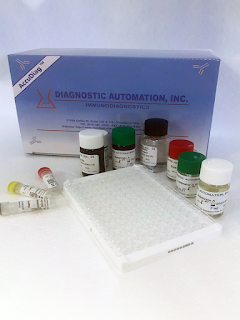The Essential Guide to Infectious Disease and Autoimmune Testing
In today’s interconnected world, the rapid and accurate detection of infectious diseases and autoimmune disorders is crucial for maintaining public health. From common viruses to complex immune system conditions, early and precise diagnosis can mean the difference between effective treatment and prolonged suffering. Laboratory tests for infectious diseases, infectious disease testing, and autoimmune conditions have become indispensable tools in healthcare, providing critical insights that guide patient care. In this blog, we'll explore the significance of these tests, how they work, and their impact on managing health in our communities.
Understanding Infectious Disease Testing
Infectious diseases are caused by pathogens like bacteria, viruses, fungi, and parasites. Laboratory tests are essential for identifying these pathogens, understanding their characteristics, and determining the appropriate treatment. Some common infectious disease tests include:
Polymerase Chain Reaction (PCR): This test amplifies the DNA or RNA of pathogens, making it easier to detect even small amounts of an infectious agent. PCR is widely used for diagnosing viral infections such as COVID-19, influenza, and HIV.
Blood Cultures: Used to detect bacterial or fungal infections in the blood, this test helps identify the specific microorganism causing the infection, which is crucial for selecting the right antibiotic or antifungal treatment.
Serological Tests: These tests detect antibodies or antigens in the blood, indicating the presence of an infection. They are commonly used for diseases like hepatitis, syphilis, and Lyme disease.
The Role of Autoimmune Lab Tests
Autoimmune diseases occur when the immune system mistakenly attacks the body’s own tissues. Diagnosing these conditions can be challenging due to their complex nature and varied symptoms. Autoimmune lab tests help identify specific markers that indicate an autoimmune response. Some key tests include:
Antinuclear Antibody (ANA) Test: This test detects autoantibodies that target the cell nucleus, often present in conditions like lupus and rheumatoid arthritis.
Rheumatoid Factor (RF) Test: This test detects the presence of rheumatoid factor, an antibody found in the blood, and is used to diagnose rheumatoid arthritis.
C-reactive protein (CRP) and Erythrocyte Sedimentation Rate (ESR): These tests measure inflammation in the body and are used to monitor the activity and progression of autoimmune diseases.
The Importance of Early Detection
Early detection through lab tests plays a critical role in managing infectious and autoimmune diseases. For infectious diseases, prompt identification allows for timely treatment, reducing the risk of complications and the spread of the disease. In the case of autoimmune disorders, early diagnosis helps manage symptoms and prevent severe tissue damage.
Advancements in Lab Testing Technology
Recent advancements in lab testing technology have significantly improved the accuracy and speed of diagnostics. Techniques like next-generation sequencing (NGS) and advanced imaging provide more detailed insights into pathogens and immune responses. These innovations enable personalized treatment plans and better disease management.
The Human Impact
Accurate and timely lab tests for infectious diseases and autoimmune conditions not only save lives but also enhance the quality of life for many individuals. Patients can receive appropriate treatments faster, reducing the burden of disease and enabling them to lead healthier, more productive lives.
Conclusion
Infectious disease and autoimmune lab tests are cornerstones of modern healthcare. These autoimmune lab tests provide essential information that guides diagnosis, treatment, and prevention strategies. As technology continues to evolve, the capabilities of these tests will only improve, leading to better health outcomes for individuals and communities. By understanding the importance of these tests, we can appreciate the vital role they play in safeguarding public health.



Comments
Post a Comment